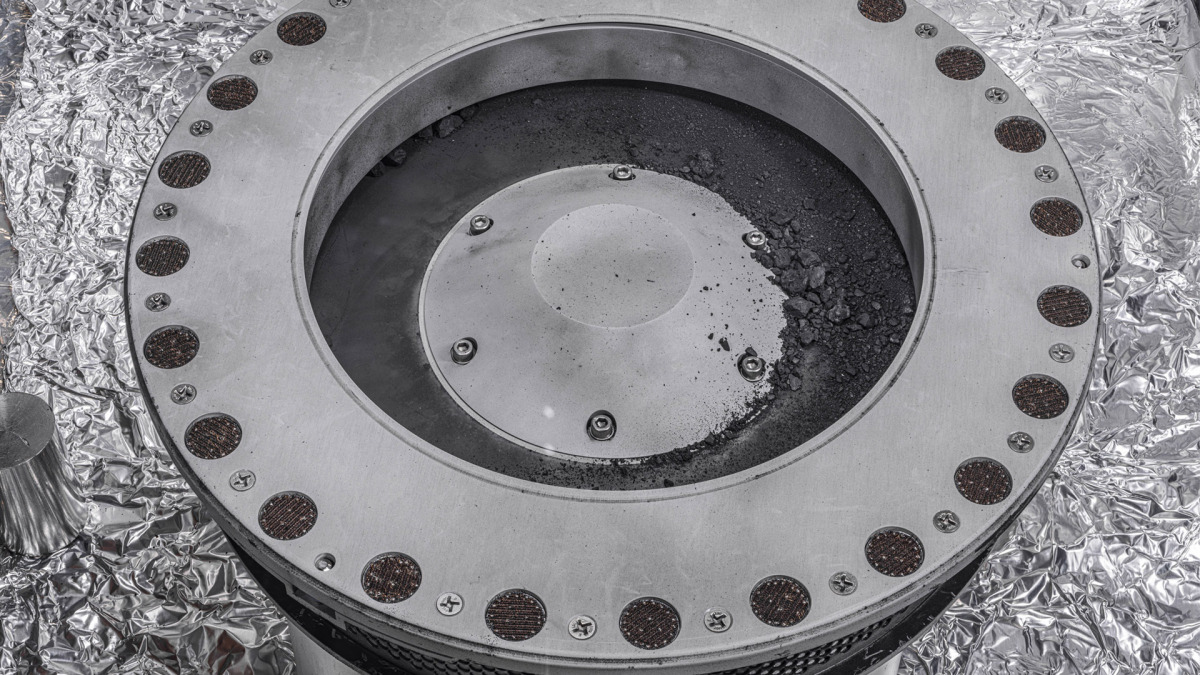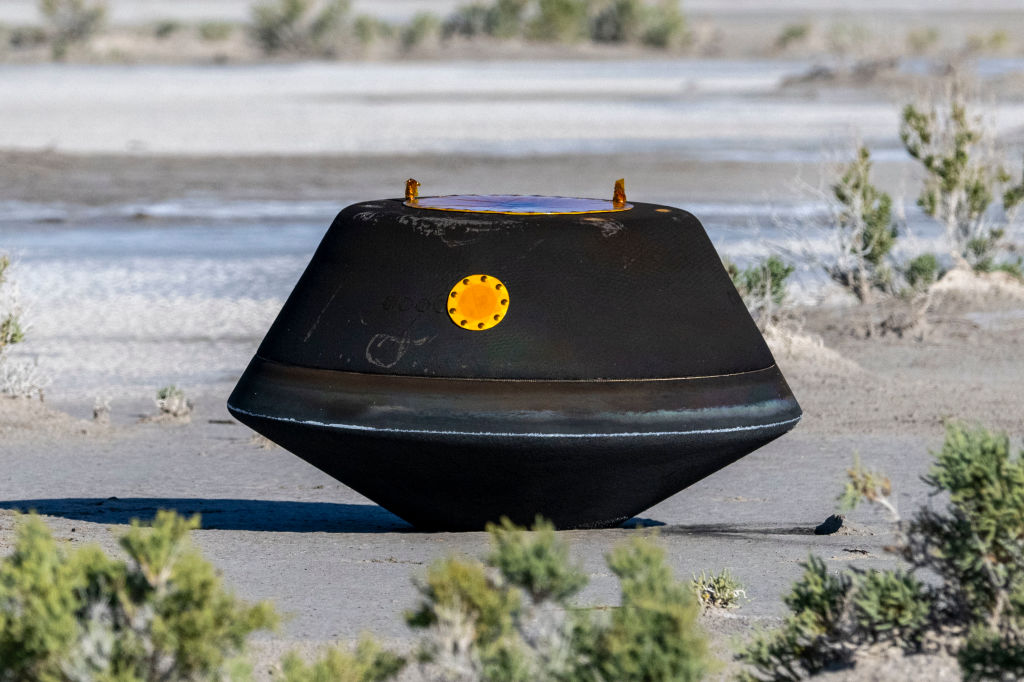NASA Encounters Challenges With Opening The OSIRIS-REx Asteroid Sample Container
NASA encounters challenges with opening the OSIRIS-REx asteroid sample container holding the asteroid dirt from Bennu, which was successfully delivered to Earth in September following a remarkable seven-year mission.
Author:Karan EmeryReviewer:Daniel JamesOct 26, 202330.7K Shares427.7K Views

NASA encounters challenges with opening the OSIRIS-REx asteroid sample containerholding the asteroid dirt from Bennu, which was successfully delivered to Earth in September following a remarkable seven-year mission. The container, housing a valuable asteroid sample, is proving to be exceptionally well-sealed, causing difficulties in its opening by the Touch-and-Go Sample Acquisition Mechanism (TAGSAM).
The challenge lies in the necessity of opening the TAGSAM within a dedicated glovebox meticulously designed to minimize any potential earth contamination. Scientists are keen on studying the sample in the purest state possible, thus mandating all extraction procedures to occur within a hermetically sealed, clean box. This environment is maintained under a constant flow of nitrogen, with scientists gaining access through attached gloves to ensure a pristine sample handling process.
The TAGSAM, which served as the collection arm head responsible for scooping up a sample of asteroid Bennu's surface in 2020, was subsequently enclosed within a canister that was sent hurtling towards Earth by the OSIRIS-REx spacecraft on its way to its next observation destination.
Recently, the canister has been unsealed, revealing a substantial quantity of asteroid dirt collected from outside the TAGSAM. This development is indeed positive news.
However, the TAGSAM head was sealed using 35 fasteners, and regrettably, two of these fasteners cannot be removed using the currently approved tools available within the glovebox. While it's possible to extract the TAGSAM head from the glovebox, this approach would expose the sample to undesirable levels of contamination.
The sample will eventually be accessed, but it will necessitate a clever and precise maneuver. Any tools used in this process must be accommodated within the confines of the glovebox, maintain the sample's integrity, and adhere to stringent clean room standards.
In a recent blog post by NASA's Erin Morton, the team has been working to develop and implement new approaches to extracting the material inside the head while continuing to keep the sample safe and pristine.
Furthermore, there's more promising news to share. Originally, the team had set their sights on capturing a minimum of 60 grams (2.1 ounces) of dust from asteroid Bennu using the TAGSAM. Through meticulous examination of material from the travel canister and the exterior of the TAGSAM, NASA's OSIRIS-REx team has successfully amassed a substantial 70.3 grams (2.48 ounces) of asteroid Bennu material.
Contained within the canister lies even more of this valuable material, estimated to be as much as 250 grams (8.8 ounces), opening up exciting scientific prospects.
While it may take a few weeks to devise a solution, the science team is diligently working on this challenge. In the interim, the TAGSAM has been carefully placed back into the transfer container, securely sealed with an O-ring, and enclosed within a nitrogen-filled Teflon bag to maintain its cleanliness and purity.
Conclusion
As we anticipate the contents of the container, we have 70.3 grams of asteroid material to commence scientific exploration. OSIRIS-REx initiated its mission as far back as 2016, so we can certainly exercise some patience for a few more weeks to uncover the mysteries hidden within the captivating black dirt it has brought back to Earth.
Jump to

Karan Emery
Author
Karan Emery, an accomplished researcher and leader in health sciences, biotechnology, and pharmaceuticals, brings over two decades of experience to the table. Holding a Ph.D. in Pharmaceutical Sciences from Stanford University, Karan's credentials underscore her authority in the field.
With a track record of groundbreaking research and numerous peer-reviewed publications in prestigious journals, Karan's expertise is widely recognized in the scientific community.
Her writing style is characterized by its clarity and meticulous attention to detail, making complex scientific concepts accessible to a broad audience. Apart from her professional endeavors, Karan enjoys cooking, learning about different cultures and languages, watching documentaries, and visiting historical landmarks.
Committed to advancing knowledge and improving health outcomes, Karan Emery continues to make significant contributions to the fields of health, biotechnology, and pharmaceuticals.

Daniel James
Reviewer
Daniel James is a distinguished gerontologist, author, and professional coach known for his expertise in health and aging.
With degrees from Georgia Tech and UCLA, including a diploma in gerontology from the University of Boston, Daniel brings over 15 years of experience to his work.
His credentials also include a Professional Coaching Certification, enhancing his credibility in personal development and well-being.
In his free time, Daniel is an avid runner and tennis player, passionate about fitness, wellness, and staying active.
His commitment to improving lives through health education and coaching reflects his passion and dedication in both professional and personal endeavors.
Latest Articles
Popular Articles
